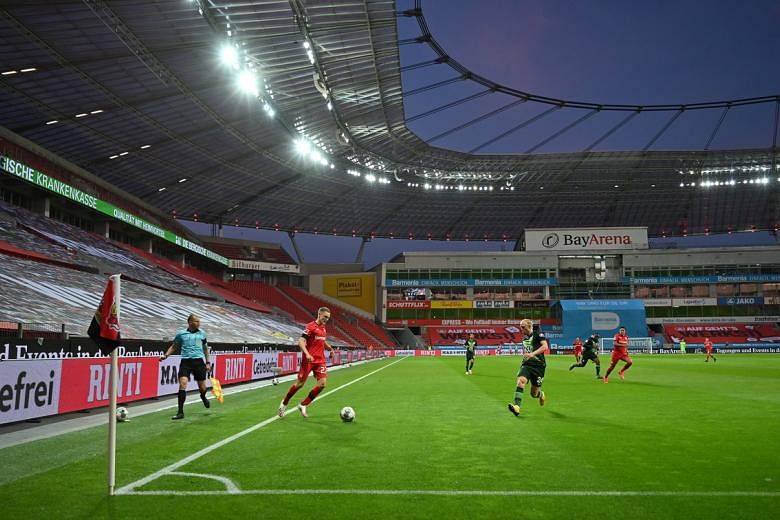PARIS • Around Europe, football is waking up from the coronavirus shutdown, but things are different for players and supporters, and it is changing behind the scenes too.
While the German Bundesliga has returned, the sport is preparing for an economic crisis which will likely impact all levels of the game.
That will be particularly visible in the transfer market, where it has become the norm to see leading clubs splash out €100 million (S$155.5 million) fees.
Damien Comolli has observed events from afar, having left his role at Turkish club Fenerbahce in January. The former Liverpool and Tottenham Hotspur sporting director said he foresees fees dropping by "between 30 and 50 per cent compared to the usual prices, and a reduction of 70 to 75 per cent in terms of activity".
In particular, the loss to clubs from match-day revenue as a result of games being played behind closed doors will impact budgets.
When it comes to signing players, those in charge of recruitment have also simply not been able to do their jobs.
"The biggest part of my job is following up on targets for the next transfer windows," said Martyn Glover, head of scouting and recruitment at English Premier League side Southampton.
Scouts usually spend much of their time travelling to watch prospective signings in action.
"I would expect to be abroad every week at some point," said Glover. "I might fly to Paris to watch Paris Saint-Germain and then the next day to Germany to watch somebody else. My week would probably be three or four live games of football."
Robert McKenzie has a similar role at Belgian second-tier outfit Leuven, who in 2017 were taken over by King Power, the Thai owners of EPL side Leicester City.
Usually he would be on the road watching up to 20 games a month, eyeing up targets.
"The current situation obviously has significant implications for what has historically been the most important part of the process - the assessment of players in live games," he said.
However, he acknowledges that the shutdown has afforded him time to assess his options.
In contrast, Newcastle United made headlines when their head of recruitment, Steve Nickson, was placed on furlough along with the whole scouting department.
In any case, how can a Premier League club plan for the summer window without knowing if they will still be a top-flight club next season, or if this season will restart, with all the financial consequences?
"There are too many imponderables," says Glover, who admitted the way his job is done could change forever.
Comolli helped introduce data use and analytics into English football and believes that approach will become more widespread.
"Maybe more and more clubs will use data and statistics instead of live scouting and maybe clubs will also investigate more the player himself, their families, the way they live," he said. "If I had one chance to go and watch a player live or one chance to meet him and his family, I would take the opportunity to go and meet him."
He believes those clubs who already place the emphasis on video scouting and data can emerge from the crisis unscathed.
Even clubs lower down may emerge stronger. That includes Leuven, although they must await the outcome of a play-off in August to see which division they will be in next season.
"I think there may be opportunities that arise for us as a club as a result of the current situation which were previously thought not possible," said McKenzie.
AGENCE FRANCE-PRESSE

